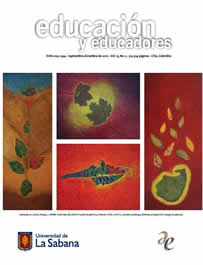Science and Common Sense: In Favor of the Teaching of Critical Common Sense
Keywords:
Science education, epistemology, education theory, phenomenology, science teaching (Source, Unesco Thesaurus)Abstract
The objective of this article is to explore some of the relationships that exist between science and common sense. It begins with the reconstruction of the thesis of modernity in which science is favored at the expense of common sense, a reconstruction based on the analysis offered by the phenomenologist Edmund Husserl. It goes on to defend the thesis that science is anchored inevitably in common sense, drawing distinctions between the “naive” or natural view and the critical approach, particularly in light of the proposals presented by the philosopher Karl Popper. To clarify these distinctions, the author evaluates several of the theories put forth by the sociologist Michel Maffesoli, which have carved out a career in different contexts and are eminently constructionist in nature. These ideas are applied to science education, and the study concludes with an outline of proposals that could be useful when designing strategies for classroom work.
Downloads
How to Cite
Issue
Section
License
1. Proposed Policy for Journals That Offer Open Access
Authors who publish with this journal agree to the following terms:
-
This journal and its papers are published with the Creative Commons License CC BY 4.0 DEED Atribución 4.0 Internacional. You are free to share copy and redistribute the material in any medium or format if you: give appropriate credit, provide a link to the license, and indicate if changes were made; don’t use our material for commercial purposes; don’t remix, transform, or build upon the material.






